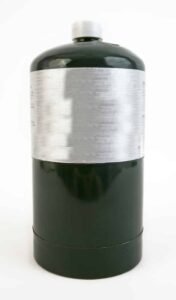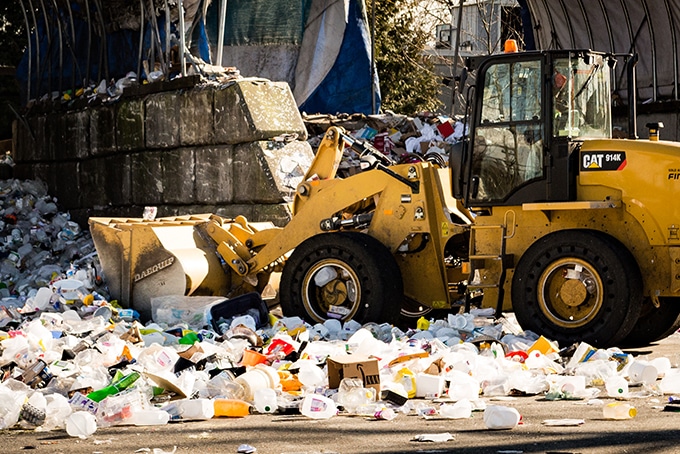Summer is an interesting time in the recycling world. Collectors and processors see an increase in problematic seasonal materials that, in addition to contaminating recyclable materials, can pose serious problems including worker injury, explosions and fires.
In this post, we look at one such hazardous item — compressed gas. Some examples of compressed gas include items related to camping and outdoor living like refillable propane tanks used for home barbecues or camp stoves, disposable propane canisters, butane canisters, ligher fluid canisters, and helium balloon tanks.
Compressed gas cylinders are dangerous when included with packaging and paper recycling at the curb, in multi-family buildings or at depots. This is primarily because they pose a risk to worker health and safety, but also because they can cause large-scale damage recycling facilities, recycling trucks or other private or public property.
One of the greatest risks when it comes to compressed gas is the risk of explosion and fire. Cylinders can explode and catch fire either on recycling trucks, or during processing. A large proportion of packaging and paper recycling is paper, boxboard or corrugated cardboard which are very flammable. Some pure compressed gases are chemically unstable. If exposed to slight temperature or pressure increases, or mechanical shock, they can readily catch fire.
In addition, many compressed gases are toxic or corrosive. Special handling is required to ensure that the cylinder is empty and that no one is harmed during the recycling process.
Other dangerous common items that can easily cause fires include cell phone and computer batteries.
Please, help us keep everyone safe. Do not include compressed gas cylinders with your household’s curbside, multi-family or Recycle BC depot recycling.
To find out more about where you can safely recycle compressed gas cylinders or other hazardous items, contact the Recycling Council of BC (RCBC) or search RCBC’s Recyclepedia app for a drop-off location near you.




